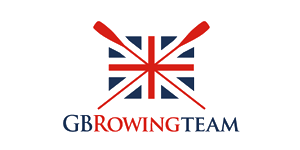Predictions power the GB Rowing Team’s quest for Olympic medals
SAS helps the nation’s elite rowers in their pursuit of excellence
As Great Britain's most successful Olympic sport, rowing carries a certain weight of expectation. Medals are not just hoped for - they are demanded. It's a sport where marginal gains in a number of areas can lead to dramatic benefits in competition performance. Fractions of seconds are often the difference between first and fourth, glory and despair. That's why the GB Rowing Team, the high-performance arm of British Rowing, is using SAS technology to analyse its athletes' data, improve its training methods and enhance preparation ahead of the Rio Olympics in 2016.
Bringing together that array of data, combined with data from competition, we have a massive resource to inform our training and development methods and enhance athlete performance. But the data is nothing without the tools to analyse it. By partnering with SAS we now have the capacity for much more in-depth and speedy analysis of the rowers.
Mark Homer
GB Rowing Team’s senior sports scientist
With top British rowers training multiple times a day, the amount of data that a single athlete can produce can be extensive, let alone an entire team. Previously this data had been scattered in various databases and spreadsheets, making it difficult to keep track of and analyse - and slow to upload. Using SAS, the GB Rowing Team is not only drawing this data together, but also doing so more quickly. This provides a platform from which sports scientists, coaches and team management can track the performance of athletes and make better decisions.
"The GB Rowing Team trains on the water, with rowing machines, and in the gym. We also travel to some challenging environments such as high altitude," says Mark Homer, the GB Rowing Team's senior sports scientist.
"Bringing together that array of data, combined with data from competition, we have a huge resource to inform our training and help to enhance athlete performance. But the data is nothing without the tools to analyse it. By partnering with SAS we now have the capacity for much more in-depth and speedy analysis of the rowers. Previously, due to the data being stored in multiple spreadsheets, it would take time to collate and analyse all the information about an individual athlete. Now, we can do this immediately."
The GB Rowing Team will be using SAS Visual Analytics to better analyse its various data sources. The capacity for more in-depth and speedy analysis of the rowers allows the team to maximise the impact of every training session. Not only that, but data analytics could be used to spot initial signs of injury so the training regime can be tailored accordingly, enabling athletes to miss fewer sessions. Ultimately this will get them in the best possible condition for competitions.
Data modelling is providing the knowledge to enable coaches and managers to make better decisions. This includes identifying promising young rowers that have the potential to reach the top, as well as matching up rowers in different boat combinations to maximise the performance of every crew.
"Rowing is already a successful sport and we have had a big surge in interest since the 2012 Games, so when people take it up, we need to be able to guide them and see that they're on the right track," says Homer. "We will know if someone is likely to flourish in a couple of years, even if their performance right now isn't up to scratch. Analysing data plays a key role in that.
"The skill sets of different athletes can match up in a number of different ways, and having a tool that helps us get the most out of our resources is hugely important. There are decisions we know we can improve on by making better use of our data. But what's exciting are the golden nuggets or 'unknown unknowns' that can emerge – those things we didn't even foresee before we started analysing the data, so we can discover more about what factors and combinations of factors affect performance."
With the 2016 Olympics and Paralympics looming large on the horizon, the role of performance analytics in rowing has never been more important. Even though the London Olympics were the most successful ever for the GB Rowing Team, Homer knows that improvement is needed if that success is to be repeated in Rio.
"We know that the gold medal times for London won't be good enough to win gold in 2016. The sport is constantly moving forward, and we expect the winning times to come down. Looking at the data, we've calculated the times we think will win gold in Rio, and the training we're doing is all about working towards those times."

Challenge
The GB Rowing Team needed an analytics solution to pursue continual success at the very top of the sport
Solution
SAS® Visual Analytics
ANSWERS from SAS®
Benefits
- SAS helps GB Rowing Team identify talent, performance peaks and injury risk
- Predictive analytics uncovers the marginal gains that make a difference
- Insight will assist the team to peak for 2016 Rio Olympics
